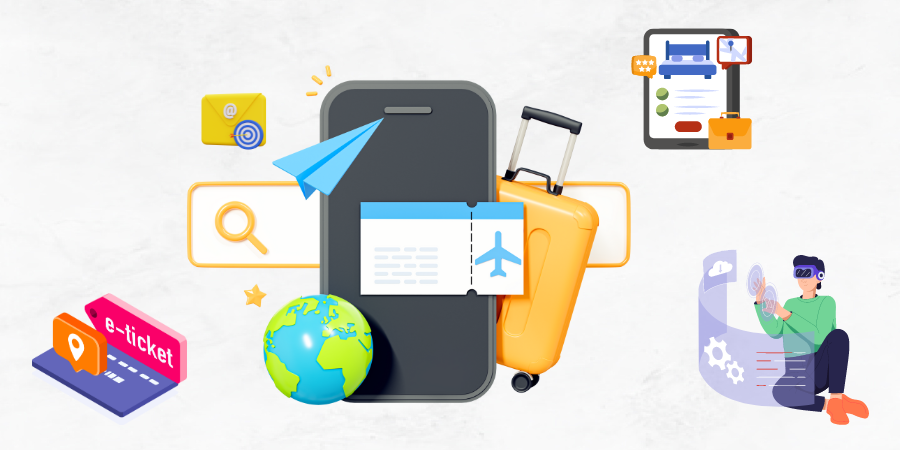
Tourism is vital for many economies worldwide, contributing significantly to GDP and employment. The advent of smart tourism—leveraging advanced digital technologies like AI, AR/VR, and IoT—promises to revolutionize the global hospitality industry, offering transformative changes that cater to modern tourists' expectations while enhancing operational efficiencies for businesses. This article delves into how these technologies reshape tourism worldwide, creating unforgettable visitor experiences and new opportunities for local businesses.
New Digital Experiences with AI
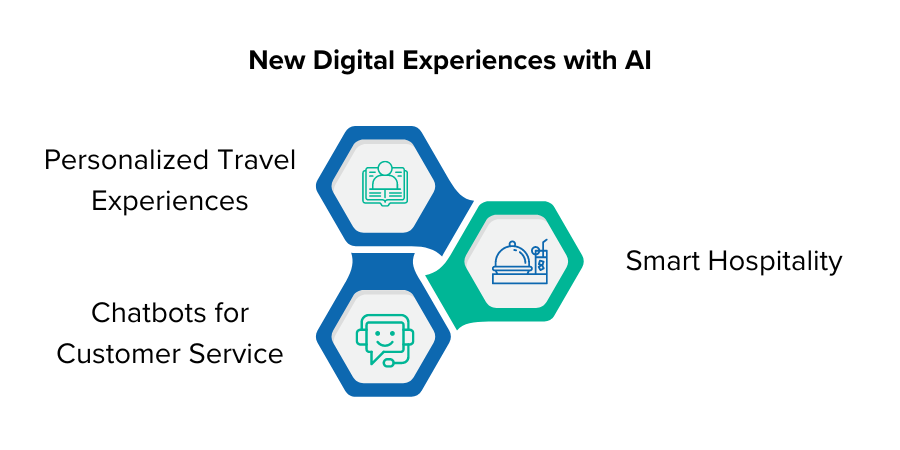
Personalized Travel Experiences
Imagine an AI-powered travel assistant that curates personalized itineraries based on tourists' preferences, historical data, and real-time inputs. For instance, an AI could suggest visiting a cultural site at sunrise, knowing it's a photographer's paradise. This AI can recommend local eateries, book cabs, and even communicate in the local dialect, offering a personal guide in the palm of your hand.
Chatbots for Customer Service
24/7 AI chatbots can handle bookings, answer queries, and provide local information in multiple languages, enhancing the tourist experience without needing constant human intervention. These chatbots ensure that tourists have seamless assistance anytime, significantly improving customer satisfaction.
Smart Hospitality
Hotels and restaurants can utilize AI for personalized guest services. From customized room settings to personalized meal recommendations, AI can enhance guest satisfaction. For example, an AI system can remember a guest's preferred room temperature and meal choices from previous stays, ensuring a personalized experience every time.
New Digital Experiences with AR/VR
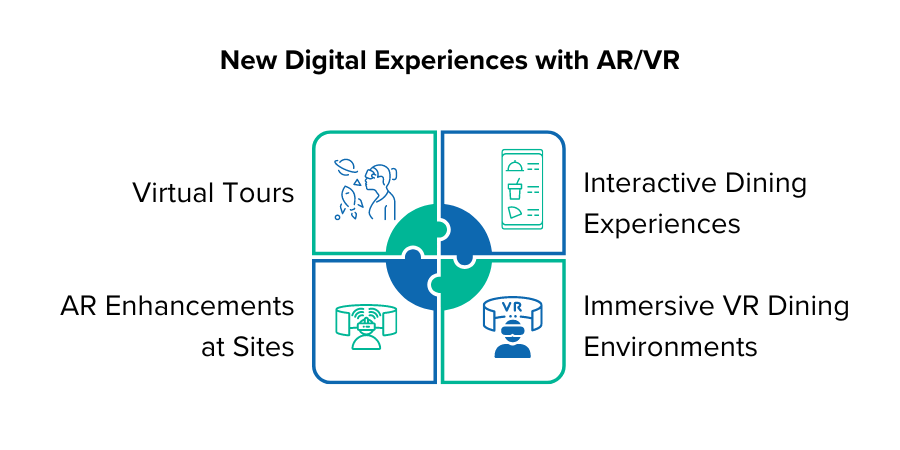
Virtual Tours
Tourists can take VR tours of landmarks before even stepping foot in a destination. This builds anticipation and ensures they know what to expect, enriching their actual visit. Imagine exploring the pyramids of Egypt or the streets of Paris from your living room.
AR Enhancements at Sites
Using AR, tourists can point their phones at historical sites and see reconstructions of what those sites looked like in their prime. Imagine walking through the ruins of the Colosseum in Rome and seeing gladiatorial battles unfold before your eyes—it's like having a time machine without a flux capacitor!
Interactive Dining Experiences
Restaurants can offer AR menus, where diners can see a 3D representation of their meal before ordering. This means they're not just reading a menu but experiencing the dish visually before it arrives. This innovation enhances the dining experience by setting accurate expectations and adding a fun, interactive element.
Immersive VR Dining Environments
With VR technology, restaurants can transport diners to different locations, such as beaches, deserts, or hilltops, while enjoying their meal. This creates a unique and memorable dining experience. Imagine enjoying your favorite dish while virtually transported to the serene beaches of Bali or the majestic Alps.
Process Improvement through Digital Transformation Suitable for SMEs
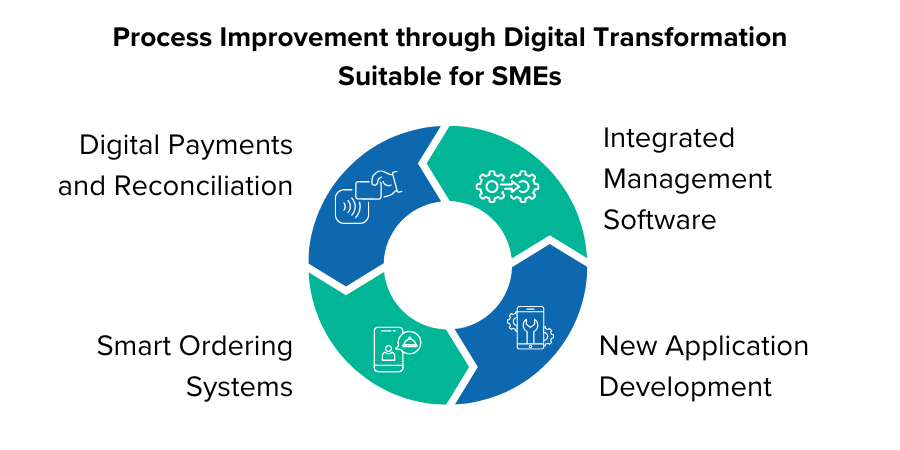
Digital Payments and Reconciliation
Encouraging SMEs to adopt digital payment systems can significantly reduce transaction times, enhance security, and attract more tech-savvy tourists. These systems streamline the payment process and simplify financial reconciliation, making operations smoother and more transparent for small businesses. Implementing mobile payment options, digital wallets, and automated billing through platforms like Batoi CloudSpace can facilitate quicker, more secure transactions and provide detailed financial analytics, helping businesses maintain accurate financial records and improve cash flow management.
Integrated Management Software
SMEs can greatly benefit from using integrated software solutions to manage bookings, inventory, and customer relations more efficiently. For instance, a small guesthouse can leverage a single app to handle everything from room availability to guest feedback. Using Batoi CloudSpace for CRM, outreach, ordering, and billing can streamline these processes, enhancing operational efficiency. The platform offers a comprehensive suite of tools that allow businesses to manage customer relationships, track inventory, process orders, and handle billing seamlessly. This integration reduces manual workload, minimizes errors, and ensures that all aspects of the business are synchronized, leading to better service delivery and increased customer satisfaction.
Smart Ordering Systems
In the restaurant industry, digital ordering systems can transform the dining experience by streamlining the order process, reducing wait times, and minimizing errors. Customers can place orders directly from their tables via tablets or smartphones, creating a seamless and efficient dining experience. Implementing these systems with platforms like Batoi CloudSpace can further enhance the process. For example, integrating smart ordering with CRM allows restaurants to track customer preferences and offer personalized recommendations, while the billing and payment features ensure smooth and secure transactions. This improves operational efficiency and enhances the overall customer experience, encouraging repeat business and positive reviews.
New Application Development
The Batoi RAD (Rapid Application Development) platform provides SMEs the tools to develop new applications quickly and efficiently. This is particularly beneficial for businesses looking to innovate and stay competitive in a rapidly changing market. The platform allows for the rapid prototyping and deployment of custom applications tailored to specific business needs, whether it’s a hotel booking system, a restaurant delivery tracking system, or a custom CRM solution. Using the Batoi RAD platform, SMEs can develop and deploy applications that integrate seamlessly with their existing systems, ensuring a cohesive digital ecosystem supporting growth and innovation.
Data Analytics
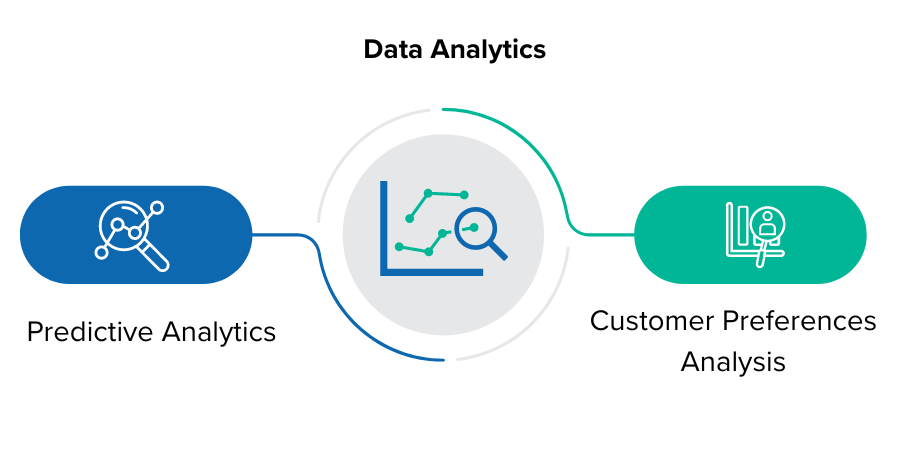
Predictive Analytics
Tourism businesses can use data analytics to predict trends, optimize pricing, and tailor marketing efforts. Analyzing tourist data can reveal peak travel times and preferred activities, allowing businesses to prepare accordingly.
Customer Preferences Analysis
Hotels and restaurants can use analytics to understand guest preferences and tailor their services. For instance, if data shows a high demand for local cuisine among international tourists, restaurants can highlight these dishes on their menus.
New Ways to Reach More Tourists
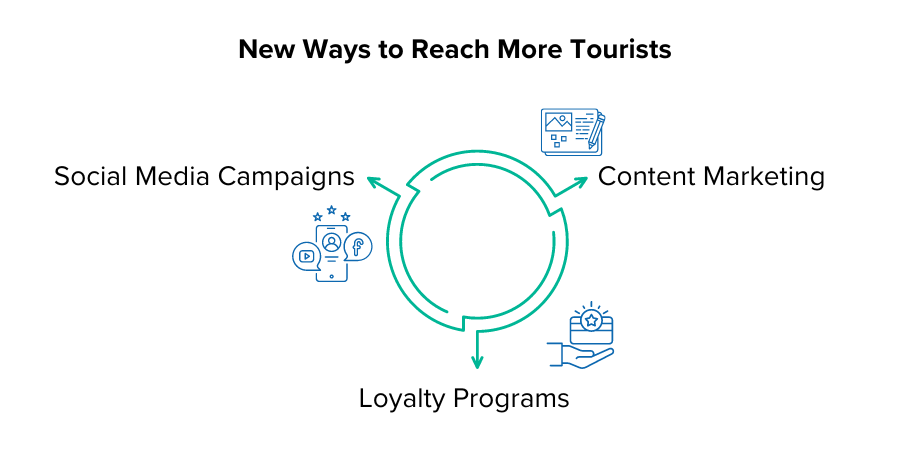
Social Media Campaigns
Leveraging platforms like Instagram, Facebook, and TikTok to showcase unique attractions can attract younger, tech-savvy travelers. Hashtags and influencer partnerships can amplify reach, driving more interest and engagement.
Content Marketing
Creating engaging content such as blogs, vlogs, and virtual tours can draw global attention. A series of videos titled 'Hidden Gems of [Destination]' could highlight lesser-known spots, attracting adventurous tourists.
Loyalty Programs
Digital loyalty programs for hotels and restaurants can attract repeat customers. Guests can earn points for stays or dining, which they can redeem for discounts or exclusive experiences.
IoT (Internet of Things)

Smart Tourism
Implementing IoT devices like smart sensors at tourist sites can provide real-time data on foot traffic, helping manage crowds and enhance safety. For instance, sensors at popular beaches can monitor environmental conditions and alert tourists about safe swimming zones.
Connected Hospitality
Hotel IoT devices can automate room settings based on guest preferences, such as lighting and temperature. Smart fridges, automated check-in kiosks, and voice-controlled room services can significantly enhance the guest experience.
Policy Interventions Needed
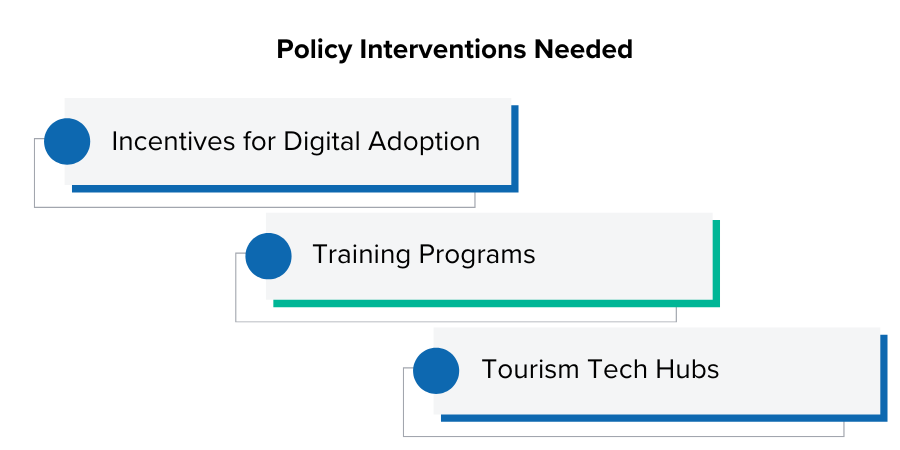
Incentives for Digital Adoption
Governments play a crucial role in accelerating the adoption of digital technologies, especially for small and medium-sized enterprises (SMEs). By offering incentives and subsidies, governments can make it financially feasible for these businesses to upgrade their operations. Imagine a scenario where an SME receives a grant to implement a cutting-edge AI-driven booking system or AR-based tourist guides. These incentives can come in various forms, such as tax breaks, direct financial grants, or low-interest loans, all aimed at reducing the financial burden of technological investment. This kind of support helps individual businesses and drives broader economic growth and innovation within the tourism sector.
Training Programs
To fully harness the potential of digital transformation, local entrepreneurs and workers must possess the necessary digital skills. Governments and educational institutions can initiate training programs to bridge this skills gap. These programs can cover various topics, from basic digital literacy to advanced AI and data analytics. Partnering with tech companies to conduct workshops can be particularly beneficial, as it brings real-world expertise into the learning environment. For example, a workshop led by a leading tech firm on implementing IoT solutions in hospitality can provide practical knowledge and inspire innovative applications. Such initiatives ensure the workforce is well-prepared for the digital age, enhancing their employability and driving the industry's growth.
Tourism Tech Hubs
Establishing tourism tech hubs in strategic locations can create ecosystems that foster innovation and collaboration. These hubs can act as incubators for tech startups, providing them with the resources and support needed to develop and deploy new technologies. Imagine a coastal city with a dedicated tech hub where startups work on VR experiences for underwater tourism or AI-powered sustainability projects for beach management. By bringing together diverse stakeholders—startups, established tourism businesses, academic institutions, and government bodies—these hubs can drive cutting-edge developments that enhance the tourism experience and boost the local economy.
Infrastructure Development
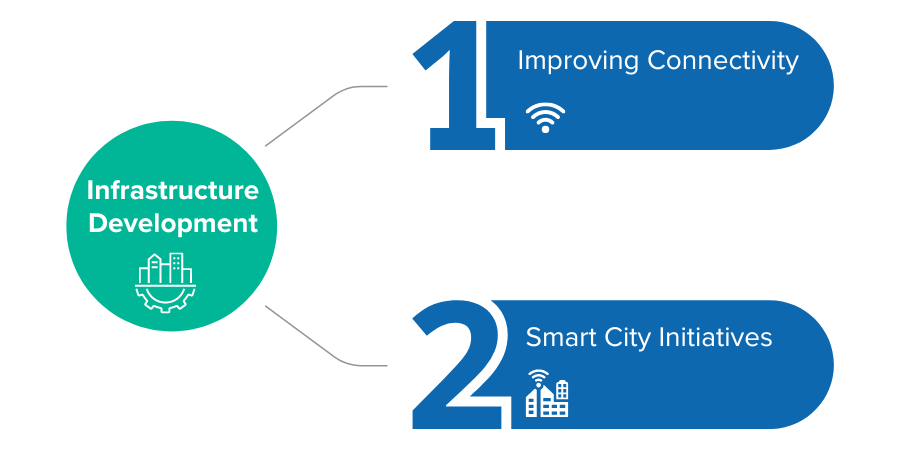
Improving Connectivity
Enhanced internet connectivity is fundamental to modern tourism. Reliable Wi-Fi and robust mobile networks across tourist destinations enable visitors to stay connected, share their real-time experiences, and access essential services effortlessly. Governments and private sector
partnerships can focus on extending high-speed internet to even the most remote tourist spots. For instance, installing Wi-Fi hotspots along popular hiking trails or in rural heritage sites can greatly enhance the visitor experience. This connectivity improves tourist satisfaction and allows businesses to offer digital services like online bookings, digital payments, and interactive guides, fostering a more dynamic and engaging tourism sector.
Smart City Initiatives
Integrating smart city concepts into popular tourist areas can significantly enhance the visitor experience. Smart transportation systems can ensure smooth transit for tourists through real-time traffic management, smart parking solutions, and efficient public transport systems. Digital information kiosks, placed strategically around the city, can provide tourists with instant access to maps, event schedules, and local attractions. IoT-enabled public services, such as smart waste management and energy-efficient lighting, contribute to a cleaner, safer, and more sustainable environment. Imagine a tourist destination where visitors can navigate the city effortlessly using a smart transportation app, receive personalized recommendations from interactive kiosks, and enjoy the comfort and safety provided by smart infrastructure. This holistic approach attracts more tourists and enhances their overall experience, encouraging longer stays and repeat visits.
Conclusion
Integrating AI, AR/VR, IoT, and other digital technologies can revolutionize global tourism, especially in the restaurant and hospitality industry. By embracing these innovations, we can provide tourists with unparalleled experiences, streamline business operations, and boost local economies. Let's work together to make the world a smarter, more connected place for tourism.



























 Batoi Corporate Office
Batoi Corporate Office